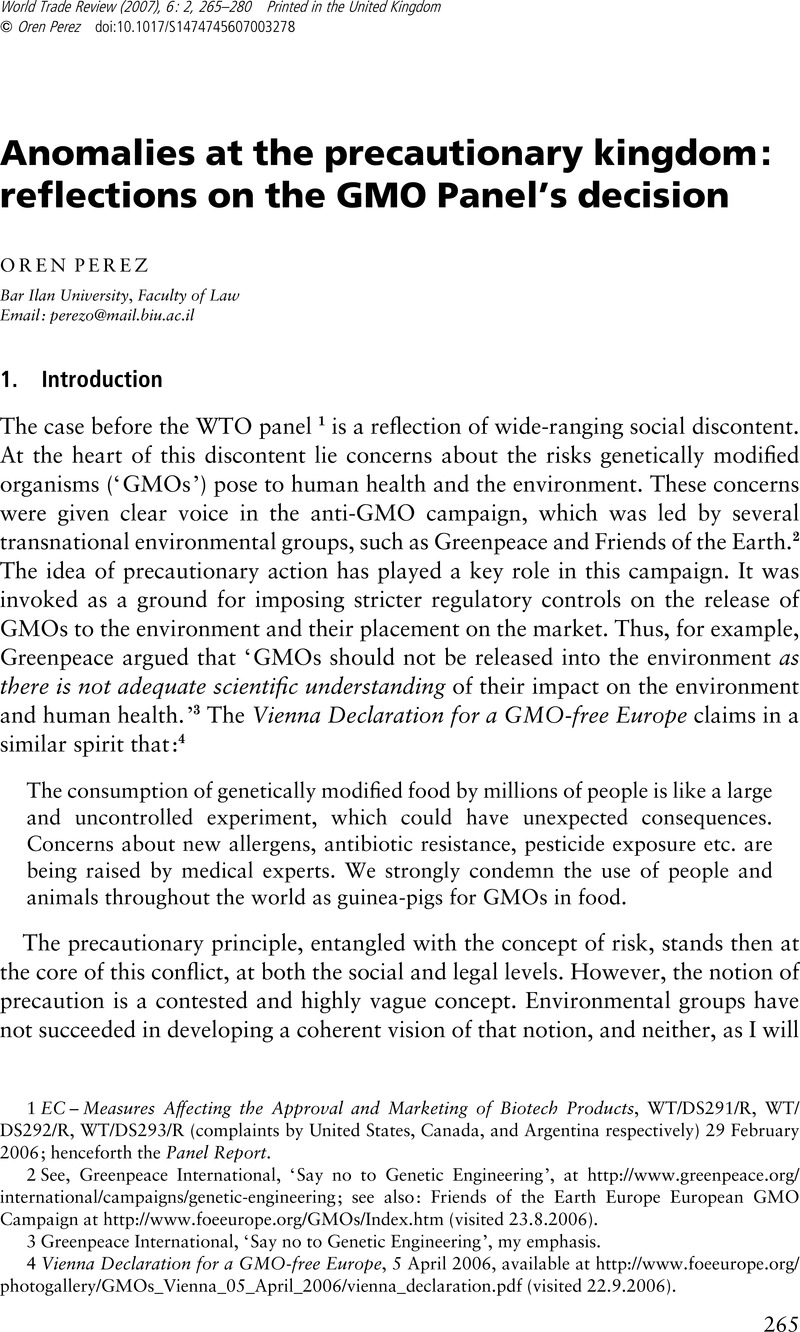Crossref Citations
This article has been cited by the following publications. This list is generated based on data provided by Crossref.
HERWIG, ALEXIA
2008.
Whither Science in WTO Dispute Settlement?.
Leiden Journal of International Law,
Vol. 21,
Issue. 4,
p.
823.
Disdier, Anne-Celia
and
Fontagne, Lionel
2009.
Trade Impact of European Measures on GMOS Condemned by the WTO Panel.
SSRN Electronic Journal,
Disdier, Anne-Célia
and
Fontagné, Lionel
2010.
Trade impact of European measures on GMOs condemned by the WTO panel.
Review of World Economics,
Vol. 146,
Issue. 3,
p.
495.
Reid, Emily
2012.
Risk Assessment, Science and Deliberation: Managing Regulatory Diversity under the SPS Agreement?.
European Journal of Risk Regulation,
Vol. 3,
Issue. 4,
p.
535.
Clark, L. F.
2013.
Framing the uncertainty of risk: Models of governance for genetically modified foods.
Science and Public Policy,
Vol. 40,
Issue. 4,
p.
479.
Herrmann-Pillath, Carsten
2013.
Leadership, Deliberative Trade Policy, and Civil Society: The Hegelian Approach.
SSRN Electronic Journal,
Smith, Pamela J.
and
Katovich, Erik S.
2017.
Are GMO Policies “Trade Related”? Empirical Analysis of Latin America.
Applied Economic Perspectives and Policy,
Vol. 39,
Issue. 2,
p.
286.
Burkard, Michael
2018.
Conflicting Philosophies and International Trade Law.
p.
353.
SMITH, PAMELA J.
JAMIYANSUREN, BOLORMAA
KITSUKI, AKINORI
YANG, JOOYOUNG
and
LEE, JAESEOK
2018.
Determinants of Comparative Advantage in GMO Intensive Industries.
World Trade Review,
Vol. 17,
Issue. 3,
p.
427.
Cai, Yan
and
Kim, Eunmi
2019.
Sustainable Development in World Trade Law: Application of the Precautionary Principle in Korea-Radionuclides.
Sustainability,
Vol. 11,
Issue. 7,
p.
1942.
Smith, Pamela J.
and
Tilman, Andrew R.
2020.
Patents for self‐replicating technologies: Game theoretic analysis of genetically modified seed.
The Journal of World Intellectual Property,
Vol. 23,
Issue. 3-4,
p.
166.



